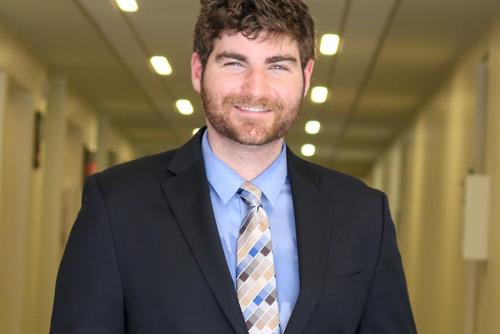Date, Time, and Format
Tuesday, July 26, 2022 (Disability Independence Day)
11:00 a.m. - 12:00 p.m. Eastern Time
Virtual Event
Event Description
In honor of the passage of the Americans with Disabilities Act (ADA) in July of 1990, Disability Pride Month is celebrated each July to highlight disabled ways of being, knowing, and thriving in the past, present, and future. Disability Pride Month serves as an opportunity for organizations to celebrate disability culture, draw attention to the expertise and lived experience of disabled individuals, raise awareness around ableism – intentional or unintentional discrimination or prejudice against disabled people - and engage non-disabled individuals in thoughtful and meaningful dialogue around disability and ableism.
Disability Pride Month and the opportunities it presents challenge us to find ways to change ableist-based perspectives on disability and spotlight disability pride, emerging disability communities such as Disability Cultural Centers at colleges and universities, authentic and real disabled representation in media such as "As We See It," and disabled-authored works such as Care Work, Demystifying Disability, and Disability Visibility. Recent works such as Academic Ableism have challenged those of us working in higher education to consciously recognize and resist ableism in our institutions.
Join Senior Vice President Lisa A. Calise as she facilitates a conversation with liz thomson (they/them) and Jeff Edelstein (he/they) about why disability identity and culture matter and how to incorporate disability identity and culture into the workplace.
Topics to be discussed:
- Person-first (person with a disability) and identity-first language (disabled person); understanding both language preferences in the workplace
- Ableism's impact in the workplace
- Understanding of disability identity, Disability Cultural Centers (DCCs), and affinity group roles
- Ways to amplify disabled voices in the workplace
- Takeaways for being in allyship
Accessibility
This event includes closed captions, a transcript, and American Sign Language (ASL). The captions and transcript are provided through a certified CART provider to ensure accurate translation of the spoken text is provided.
Post-Event Materials
PowerPoint Slides
Download the PowerPoint slides from the event, which includes the following recommended resources:
- Open Access Books & Articles
- Organizations & Blogs
- Podcasts & Videos
Video Recording
Guest Speakers

Jeff Edelstein
Research Data Coordinator for the Institute for Community Inclusion (ICI), UMass Boston
Pronouns: He/They

Elizabeth (liz) Anh Thomson, PhD
Assistant Vice Chancellor for Student Affairs; Director, Office of Equity, Diversity, and Intercultural Programs, University of Minnesota Morris
Pronouns: They/Them
What is Disability Independence Day?
Disability Independence Day recognizes July 26, 1990, the day that the Americans with Disabilities Act (ADA) was signed into law by President George H.W. Bush. Modeled after the Civil Rights Act of 1964, the ADA is one of America's most comprehensive pieces of civil rights legislation that prohibits discrimination and guarantees that disabled people/people with disabilities have the same opportunities as everyone else to participate in the mainstream of American life - to enjoy employment opportunities, to purchase goods and services, and to participate in state and local government programs and services.
Disability Independence Day is a day where the disability community recognizes both how far we've come and raises awareness around the barriers that are still preventing the community from realizing equality.
